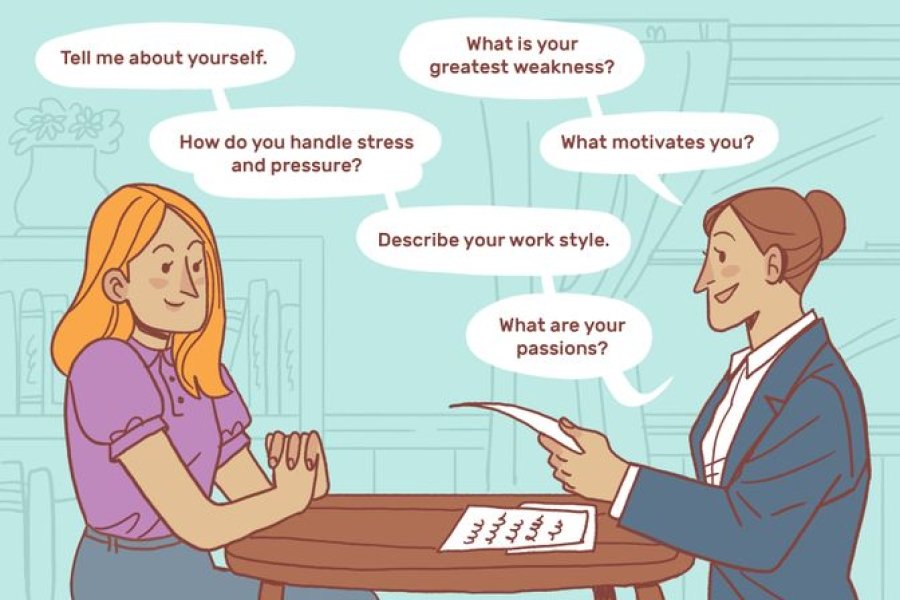- Afghanistan
- Åland Islands
- Albania
- Algeria
- American Samoa
- Andorra
- Angola
- Anguilla
- Antarctica
- Antigua and Barbuda
- Argentina
- Armenia
- Aruba
- Australia
- Austria
- Azerbaijan
- Bahamas
- Bahrain
- Bangladesh
- Barbados
- Belarus
- Belgium
- Belize
- Benin
- Bermuda
- Bhutan
- Bolivia
- Bonaire, Sint Eustatius, and Saba
- Bosnia and Herzegovina
- Botswana
- Bouvet Island
- Brazil
- British Indian Ocean Territory
- British Virgin Islands
- Brunei
- Bulgaria
- Burkina Faso
- Burundi
- Cambodia
- Cameroon
- Canada
- Cape Verde
- Cayman Islands
- Central African Republic
- Chad
- Chile
- China
- Christmas Island
- Cocos [Keeling] Islands
- Colombia
- Comoros
- Cook Islands
- Costa Rica
- Croatia
- Cuba
- Curaçao
- Cyprus
- Czech Republic
- Congo - Kinshasa
- Denmark
- Djibouti
- Dominica
- Dominican Republic
- Timor-Leste
- Ecuador
- Egypt
- El Salvador
- Equatorial Guinea
- Eritrea
- Estonia
- Ethiopia
- Falkland Islands
- Faroe Islands
- Fiji
- Finland
- France
- French Guiana
- French Polynesia
- French Southern Territories
- Gabon
- Gambia
- Georgia
- Germany
- Ghana
- Gibraltar
- Greece
- Greenland
- Grenada
- Guadeloupe
- Guam
- Guatemala
- Guernsey
- Guinea
- Guinea-Bissau
- Guyana
- Haiti
- Heard Island and McDonald Islands
- Honduras
- Hong Kong SAR China
- Hungary
- Iceland
- India
- Indonesia
- Iran
- Iraq
- Ireland
- Isle of Man
- Israel
- Italy
- Côte d’Ivoire
- Jamaica
- Japan
- Jersey
- Jordan
- Kazakhstan
- Kenya
- Kiribati
- Kosovo
- Kuwait
- Kyrgyzstan
- Laos
- Latvia
- Lebanon
- Lesotho
- Liberia
- Libya
- Liechtenstein
- Lithuania
- Luxembourg
- Macau SAR China
- Macedonia
- Madagascar
- Malawi
- Malaysia
- Maldives
- Mali
- Malta
- Marshall Islands
- Martinique
- Mauritania
- Mauritius
- Mayotte
- Mexico
- Micronesia
- Moldova
- Monaco
- Mongolia
- Montenegro
- Montserrat
- Morocco
- Mozambique
- Myanmar [Burma]
- Namibia
- Nauru
- Nepal
- Netherlands
- Netherlands Antilles
- New Caledonia
- New Zealand
- Nicaragua
- Niger
- Nigeria
- Niue
- Norfolk Island
- North Korea
- Northern Mariana Islands
- Norway
- Oman
- Pakistan
- Palau
- Palestinian Territories
- Panama
- Papua New Guinea
- Paraguay
- Peru
- Philippines
- Pitcairn Islands
- Poland
- Portugal
- Puerto Rico
- Qatar
- Congo - Brazzaville
- Réunion
- Romania
- Russia
- Rwanda
- Saint Barthélemy
- Saint Helena
- Saint Kitts and Nevis
- Saint Lucia
- Saint Martin
- Saint Pierre and Miquelon
- Saint Vincent and the Grenadines
- Samoa
- San Marino
- São Tomé and Príncipe
- Saudi Arabia
- Senegal
- Serbia
- Serbia and Montenegro
- Seychelles
- Sierra Leone
- Singapore
- Sint Maarten
- Slovakia
- Slovenia
- Solomon Islands
- Somalia
- South Africa
- South Georgia and the South Sandwich Islands
- South Korea
- South Sudan
- Spain
- Sri Lanka
- Sudan
- Suriname
- Svalbard and Jan Mayen
- Swaziland
- Sweden
- Switzerland
- Syria
- Taiwan
- Tajikistan
- Tanzania
- Thailand
- Togo
- Tokelau
- Tonga
- Trinidad and Tobago
- Tunisia
- Turkey
- Turkmenistan
- Turks and Caicos Islands
- Tuvalu
- U.S. Virgin Islands
- Uganda
- Ukraine
- United Arab Emirates
- United Kingdom
- United States
- U.S. Minor Outlying Islands
- Uruguay
- Uzbekistan
- Vanuatu
- Vatican City
- Venezuela
- Vietnam
- Wallis and Futuna
- Western Sahara
- Yemen
- Zambia
- Zimbabwe
Job Interview Questions, Answers, and Advice for Preparation

Job Interview Questions, Answers, and Advice for Preparation
You should spend some time reviewing sample responses to the most typical interview questions so that you are well-prepared for your interview. An interview might be a stressful experience if you don't know what you're going to say.
Make a Good First Impression on the Interviewer
- You don't have to have an answer memorised, but you should think about your response in advance. In an interview, the better prepared you are, the more confident you will be.
- Take a look at this summary of how job interviews operate and these preparation ideas to help you ace your interview if you're unsure what to anticipate.
Answers to Common Questions about Work
To help you prepare for your interview, we've compiled a list of the most often asked questions, along with samples of the best replies for each one.
Questions Regarding Your Personality
Interviewers want to get a sense of your personality and see if you'd be a good match for the position and the firm as a whole. In order to demonstrate your suitability for the post, answer these open-ended questions honestly:
- I'd want to learn more about you.
- Who or what is your greatest strength?
- Do you have any weaknesses that you'd like to address?
- That which sets you apart.
- Describe a non-resume accomplishment.
- How will your greatest strength help you perform?
- Failure is a part of life.
- How do you deal with success?
- Do you feel like you've achieved success? Why?
- When under pressure, how do you deal with it?
- What kind of person are you?
- Explain the usual work week.
- How kind are you?
- Is it okay with you if you don't succeed?
- Is it possible for you to move?
- Explain your work ethic.
- Explain your working method.
- Do you have a good rapport with others?
- Do you bring your work with you when you go home?
- What sets you apart from the rest of the pack?
- Do you see yourself as a person? Who do you use as a benchmark?
- What are your long-term goals and how does this employment fit into them?
- Which weekdays do you typically work?
- How quickly can you adapt to a new situation?
- What kind of adjustments would you have to make if you started working for a new company?
- What's the best way to sum up the tempo of your work?
- What would your coworkers say about your character?
- A lecturer could characterise you as...
- Do you have any further information that we should be aware of?
- What drives you forward?
- Are you a self-starter?
- What decisions do you find the most difficult to make?
- What has been your greatest disappointment?
- Are you a fan of a certain subject or hobby?
- What are you interested in?
- What do you want to do in life?
- Have you ever gotten away with something horrific?
- What didn't you enjoy about your previous position?
- Respect or likeability? That is the question.
- If you could go back in time and change anything in the last decade of your life, what would you do?
What Do You Know About Leaving Your Current Position?
Most employers want to know why you left or are leaving your previous position. Be prepared to give a reason for why you're resigning from your position. Check to see whether the reasons you offer align with what your previous employers would say about you if you ask them for a recommendation:
- What's driving your decision to leave your current position?
- Why are you looking for a new position?
- The reason for your dismissal remains a mystery.
- What led to your dismissal?
- For what reasons did you decide to leave your position?
- As to why you resigned,
- The past several months have been a time of transition for you.
- Why have you been unable to get a job?
Why We should Hire You
What sets you apart from the rest of the candidates? What is it about you that makes you the ideal candidate for the position? This is your time to convince the interviewer to provide you an offer of employment and persuade them to hire you:
- What makes you the best candidate for the job?
- What's the harm in hiring you?
- What value do you provide to this organisation?
Salary-Related Concerns
Compensation is one of the most challenging aspects of a job interview. Find out what you'll be asked and how to answer it here. In certain places, employers aren't permitted to ask about your pay history while you're applying for a job:
- How much did you earn at the beginning and at the end of your employment?
- What salary goals do you have?
- How much do you need to earn before you accept a job?
- If the pay is lower, why would you take it?
Competency-Based Questions
Your suitability for the position is the most crucial factor that interviewers look for. They'll ask these questions to learn more about you. Be explicit in your response:
- Describe a relevant experience that you've had in the past.
- Is it possible that you're overqualified for this position?
- In what ways did you contribute to the company's bottom line?
- Inquiries concerning your talents in the workplace
- I'd want to sell you this pen.
- I'd want to know more about your schooling.
- What distinguishes you from the other contenders for the position?
- At what point in the job will you feel most comfortable?
- What are the most difficult aspects of this work for you?
- What are the guiding principles of your work?
- What is the most important quality that you need to have in order to be successful?
- Because you'd like to work in a lower-level position, why?
To What Extent Are You Able to Discuss Your Career?
Is your work history steady, has it prepared you for the position you're applying for, and do you have any gaps in your career history that the firm should be concerned about?? If not, be prepared to answer queries regarding what you were doing when you weren't working:
- We want to know more about your professional background.
- Your resume is being questioned.
- To what extent were your expectations for the job met?
- What did you have to do?
- What were the most difficult issues you had to deal with? How did you deal with it?
- Your failures have taught you a lot about yourself.
- What aspects of your prior position did you appreciate or find lacking?
- Which was the most gratifying or the least gratifying?
- During this time, what do you consider to be your most significant success or setback?
- Concerns of being demoted at work.
- You've had an influence on worker safety, but what?
- Describe the time that has elapsed since your last job.
Performance Evaluations for the Workplace
How well you've done in past positions may be an indication of how well you'll do in the position you're looking for. Be ready to talk about your accomplishments and failures.
Your performance should be compared to the employer's expectations when answering inquiries regarding your qualifications:
- What are the most common things people say about you?
- What was the most stinging criticism you received from your manager?
- What irritates you?
- What difficulties have you had at work??
- How would you go about energising your group?
- An applicant's suitability to the position is a primary consideration.
- Do you remember when you were enraged? What's going on here?
- Why did you not get a promotion at your previous job?
- Tell me about a situation in which you wish you had done anything differently.
- What would the individuals who know you best say if they were asked why you should be hired?
- We want to know what style of workplace you like.
- Do you have a way of gauging success?
- Tell us about a time when you faced a challenge at work or on a project and how you overcome it.
- An example of how you handled a stressful situation might be helpful.
The following questions relate to management and teamwork:
Are you a good teammate? The answer to this question is, "Yes." Do you like to work alone or in a team environment? All employers care about your work style and how well you get along with your coworkers, bosses, and customers or clients. When it comes to getting along with coworkers, companies ask these questions:
- Who were your greatest and worst bosses, respectively?
- Describe the kind of boss you want to work with.
- What would you do if you knew your employer was completely incorrect about something?
- What do you hope to get out of your boss?
- Have you ever had a problem with a boss?
- Was your work style a good fit?
- Tell us about a time when you had to deal with a difficult employee.
- Is it a plus for you to be a part of a dynamic team?
- Give some concrete instances of how a group may work together effectively.
- More questions about collaboration in the interview.
Taking on a New Position and Company
It is important to answer questions regarding the organisation, such as why you are interested in the role and what you would do if employed. Prior to the interview, do some research on the firm and the position you're applying for so that you can ask intelligent questions:
- How do we stack up against your present workplace in terms of quality?
- What draws you to this position?
- What are your impressions of this business?
- What are your impressions of this business? (in the case of sales positions)
- Why are you interested in this position?
- What drew you to this company?
- What sort of job difficulties are you seeking for?
- When you start your new employment, what do you hope to accomplish in the first month?
- For the first 60 days, what can we anticipate from you?
- Is it possible for you to travel?
- How can you tell whether a company is providing excellent customer service?
- What kind of workplace environment would you like to have?
- When are you available to start?
- Any information I haven't provided about the position or firm that I should be aware of?
I'm Worried About What's To Come
Most companies want to know if you'll remain around once they hire you. All of these questions will help you determine whether or not you're ready to make a long-term commitment:
- Tell me about the newest developments in your field.
- What kind of work environment are you hoping to find when you leave your current position? What are your priorities?
- Do you have a career development strategy in place?
- What do you want to be doing in five years?
- Describe your strategy for achieving your objectives.
- In the event that you do not land this post, what will you do?

 by Admin
by Admin


